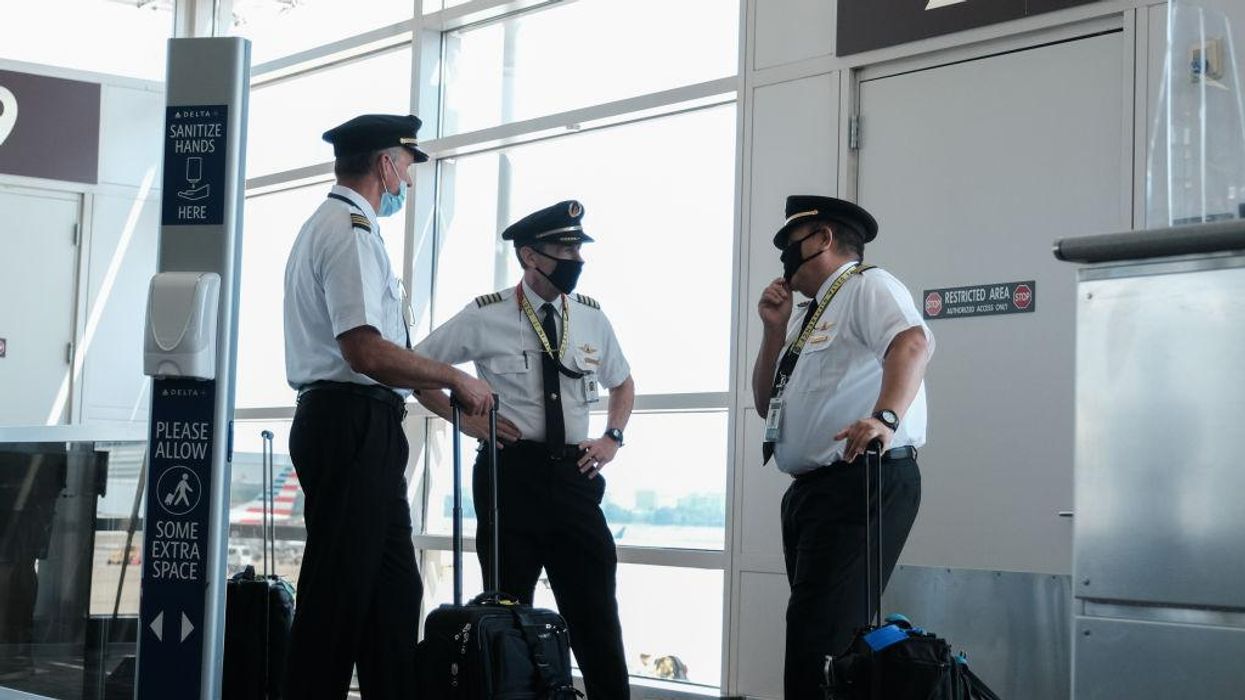
Michael A. McCoy/Getty Images

The U.S. pilot shortage has reportedly gotten so bad that airlines and carriers have started dropping experience requirements and cutting the number of training hours needed in order to fly their planes, Business Insider reported over the weekend.
Earlier this year, Delta joined other major airlines in announcing an end to its long-standing requirement that pilots possess four-year degrees in hopes of attracting more candidates to the industry. The achievement is now only a "preferred" criterion.
"While we feel as strongly as ever about the importance of education, there are highly qualified candidates — people who we would want to welcome to our Delta family — who have gained more than the equivalent of a college education through years of life and leadership experience," Delta wrote in its Jan. 6 announcement. "Making the four-year degree requirement preferred removes unintentional barriers to our Delta flight decks."
Republic Airways, the nation's second-largest regional carrier, which reportedly operates on behalf of several major airlines — including Delta, American, and United — took an even bolder approach by seeking to trim the number of required training hours for pilots in half.
In a petition filed with the Federal Aviation Administration in April, Republic asked permission to bring the number of mandatory flight hours down to 750 from 1,500 hours. Even now, the carrier has exemptions in place for candidates with degrees that cut the required hours down to 1,000.
Other airlines have adopted less drastic, though still strange, solutions. CNBC reported last week that airlines such as Frontier are hiring pilots from Australia, and American has even begun selling bus tickets for shorter routes.
The range of moves comes as the U.S. flight industry faces one of its greatest pilot shortages in recent memory, with U.S. airlines reportedly hoping to hire 12,000 pilots combined this year alone. The shortage has caused airlines to consistently ground planes and cancel flights and has sent the cost of air travel skyrocketing.
During the COVID-19 pandemic, pilot training and hiring slowed along with flight traffic, and airlines handed out early retirement packages and trimmed staff in efforts to save money. But the budget-saving practices are reaping their consequences now. With travel demand returning to pre-pandemic levels, the palpable dearth of qualified pilots remains.
And at least one airline executive believes the shortage will take years to solve, even with drastic requirement reduction.
"The pilot shortage for the industry is real, and most airlines are simply not going to be able to realize their capacity plans because there simply aren’t enough pilots, at least not for the next five-plus years," United Airlines CEO Scott Kirby said on a quarterly earnings call in April, according to CNBC.
One senator is considering a different approach as an alternative to cutting training hours and dropping requirements for pilots, which could be viewed as dangerous by the public.
Sen. Lindsey Graham (R-S.C.) recently floated introducing legislation that could raise the mandatory retirement age for pilots to at least 67 from 65, according to Bloomberg.
Henry Harteveldt, a travel analyst and the president of Atmosphere Research Group, told Insider, "Optically, cutting the number of required flying hours may look like a riskier approach than allowing a healthy pilot to continue flying a few more years."